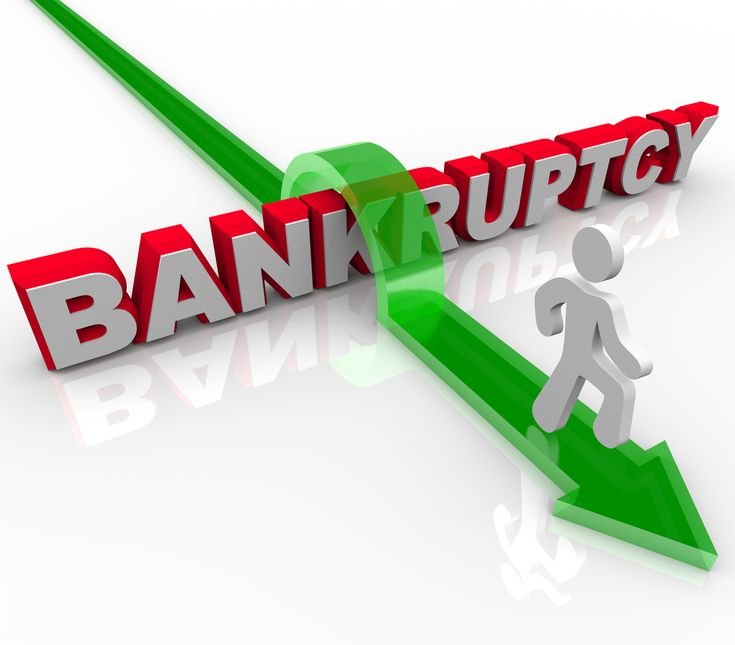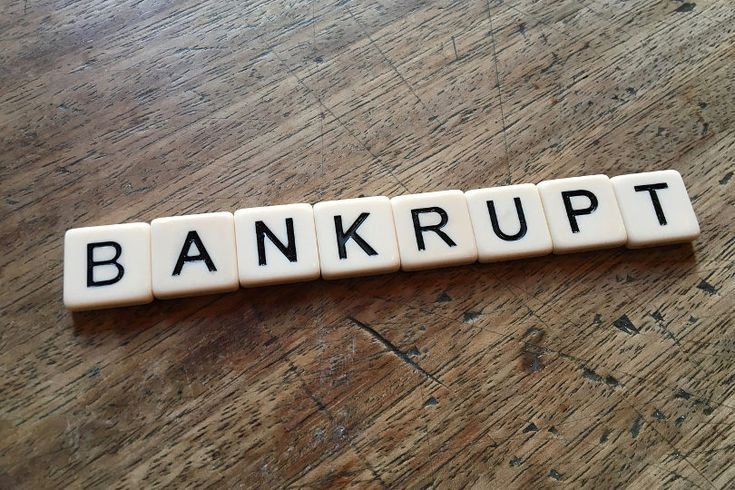
Buried Under Debt? Understanding Debt Settlement vs. Bankruptcy
The weight of debt can feel like a suffocating anchor, dragging you down and hindering your financial
aspirations. Medical bills pile up, credit card balances balloon and the constant pressure to stay afloat
can be overwhelming. If you’re struggling to manage multiple debts, you’re not alone. Millions of
Americans grapple with similar financial burdens.
The good news is there are options available to help you break free from the shackles of debt. Two
common strategies are debt settlement and bankruptcy. Both offer paths toward debt relief, but they
function differently. This comprehensive guide will delve into the key differences between debt
settlement and bankruptcy, helping you understand the advantages and disadvantages of each
approach.
Debt Settlement: A Negotiation Strategy
Debt settlement focuses on negotiating with your creditors to settle your debts for less than the amount
you owe. A debt settlement company acts as an intermediary, negotiating with creditors on your behalf
to reduce your outstanding balances. Here’s a breakdown of the debt settlement process:
- Enrollment: You enrol in a debt settlement program with a reputable company.
- Savings and Negotiation: You stop paying your creditors and instead start depositing a designated amount into a savings account managed by the debt settlement company. These funds are used to negotiate settlements with your creditors.
- Negotiation Process: The debt settlement company negotiates with your creditors to significantly reduce your outstanding balances. This may involve offering a lump sum payment to settle the debt fully.
- Payout and Account Closure: Once a settlement is reached with a creditor, the funds from your savings account are used to pay the agreed-upon amount. Your account with that creditor is then closed.

Advantages of Debt Settlement
Debt settlement can be an attractive option for individuals facing significant debt burdens, offering
several potential benefits:
- Reduced Debt: Debt settlement can substantially reduce your total debt obligation, making regaining financial control more manageable.
- Streamlined Payments: While enrolled in the program, you’ll only need to make one monthly payment to the debt settlement company, simplifying your budgeting process.
- Debt Relief for Unsecured Debts: Debt settlement is most effective for unsecured debts such as credit cards and medical bills. Secured debts, like mortgages and car loans, are typically not included in a debt settlement program.

Disadvantages of Debt Settlement
While debt settlement offers benefits, it’s crucial to understand some potential drawbacks:
- Impact on Credit Score: Debt settlement can significantly damage your credit score for several years. Late payments and accounts marked as “settled” during the program negatively impact your creditworthiness.
- Fees Associated with Debt Settlement Companies: Debt settlement companies typically charge fees based on a percentage of your enrolled debt. These fees can be substantial and erode the savings achieved from debt reduction.
- Tax Implications: The IRS may consider the forgiven debt amount taxable income. It’s essential to consult with a tax professional to understand the potential tax consequences of debt settlement.
- Uncertainty of Success: Debt settlement success hinges on the effectiveness of the debt settlement company’s negotiations with creditors. There needs to be a guarantee of achieving significant reductions on your debt.
Bankruptcy: A Legal Fresh Start
Bankruptcy is a legal process overseen by the court system that provides a path to debt relief. Two main
chapters of bankruptcy commonly filed by individuals are Chapter 7 and Chapter 13.
- Chapter 7 Bankruptcy: This chapter offers a quicker route to debt elimination. The court- appointed trustee liquidates your non-exempt assets to pay back creditors to the extent possible. Any remaining eligible debts are discharged, providing a clean slate.
- Chapter 13 Bankruptcy: This chapter involves creating a court-approved repayment plan spanning 3-5 years. You’ll pay a court-appointed trustee who distributes the funds to your creditors monthly. Once the plan is completed, any remaining eligible debts are discharged.

Advantages of Bankruptcy
Bankruptcy offers a robust and comprehensive approach to debt relief, with some key advantages:
- Automatic Stay on Collections: Filing for bankruptcy triggers an automatic stay on collection activities. This means creditors can no longer contact you, garnish your wages, or file lawsuits to collect debts.
- Debt Elimination (Chapter 7) or Repayment Plan (Chapter 13): Chapter 7 allows for eliminating most unsecured debts, while Chapter 13 offers a structured repayment plan to become debt- free within a designated timeframe.
- Protection of Exempt Assets: Depending on your state’s exemption laws, some assets may be protected from liquidation in Chapter 7 bankruptcy.
Disadvantages of Bankruptcy
While bankruptcy offers a fresh start, it’s essential to consider some potential drawbacks:
- Severe Impact on Credit Score: Filing for bankruptcy can significantly damage your credit score for several years, making it difficult to qualify for loans or other forms of credit.
- Long-Term Repercussions: Bankruptcy remains on your credit report for 7-10 years, depending on the chapter filed. This can hinder your ability to secure favourable interest rates on loans and may affect your eligibility for specific jobs or housing opportunities.
- Costs Associated with Bankruptcy: Legal fees associated with filing for bankruptcy can be significant. Additionally, court costs and administrative fees may apply.
- Loss of Non-Exempt Assets (Chapter 7): In Chapter 7 bankruptcy, the court may liquidate some non-exempt assets to pay back creditors. This could involve selling your car, a second home, or other valuable possessions.

Debt Settlement vs. Bankruptcy: Choosing the Right Path
The choice between debt settlement and bankruptcy depends on your financial situation, debt burden,
and future goals. Here are some key factors to consider:
- The amount and type of debt you have: Debt settlement is generally more suitable for unsecured debts like credit cards and medical bills. Bankruptcy can handle a broader range of debts, including secured debts like mortgages and car loans (with certain limitations).
- Your financial situation: Debt settlement may be a viable option if you have sufficient disposable income to contribute to a savings account for settlements. Bankruptcy might be more suitable if you face immediate financial hardship and cannot keep up with current debt payments.
- Your future financial goals: If you plan to pursue significant loans shortly, such as a mortgage or car loan, preserving your credit score might be a priority. In this case, debt settlement might be more damaging than bankruptcy in the short term.
- Your risk tolerance: Debt settlement involves some uncertainty, as the success of negotiations with creditors can vary. Bankruptcy offers a more definitive path to debt relief but has a longer- lasting impact on your credit score.
Money Melon: Your Guide Through Debt Relief Options
At Money Melon, we understand that navigating the complexities of debt relief can be daunting. We’re
here to help you explore all your options and choose the path best suits your financial circumstances.
Here’s how Money Melon can assist you:
- Free Consultation: Our experienced debt specialists will discuss your financial situation and goals. We’ll assess your debt burden and recommend personalized debt relief strategies, including weighing the pros and cons of debt settlement vs. bankruptcy.
- Debt Analysis and Budgeting: We’ll work with you to analyze your income, expenses, and debts. This comprehensive overview will help determine whether debt settlement is financially feasible or bankruptcy is more suitable.
- Credit Counseling: We can connect you with reputable credit counselling agencies that offer guidance on financial management and explore options beyond debt settlement and bankruptcy, such as Debt Management Plans.
- Support Throughout Your Journey: Whether you choose debt settlement, bankruptcy, or another debt relief option, we’ll remain by your side. We’ll provide ongoing support and guidance to ensure you stay on track and achieve your financial goals.
Don’t Let Debt Hold You Back
Taking control of your finances and achieving your financial goals is possible. Money Melon is dedicated to empowering you with the knowledge and resources needed to overcome debt burdens. Schedule a free consultation with a Money Melon debt specialist today! We’ll help you understand your options and choose the path towards a brighter financial future.
We can help you break free from debt and achieve financial freedom!

Leave a Reply